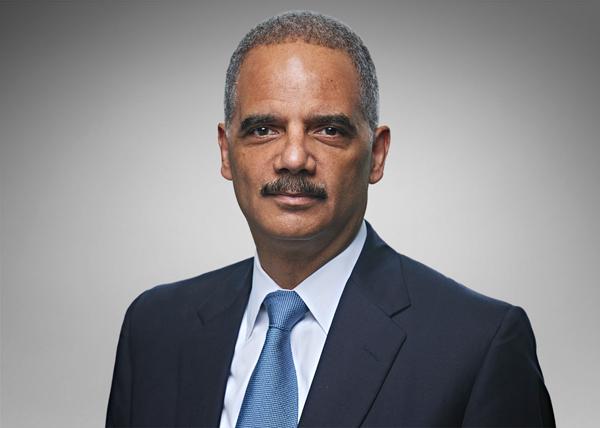As we noted in a recent client advisory, we have observed an upward trend in recent years in anti-corruption enforcement activity in Africa, including cross-border cooperation between African law enforcement authorities and their counterparts in the U.S. and UK. Looking ahead to 2021 and beyond, we see no reason to expect this trend to reverse.
While 2020 did not bring any blockbuster U.S. Foreign Corrupt Practices Act (“FCPA”) enforcement actions focused on conduct in Africa, there were several enforcement actions of note. This includes the U.S. Security and Exchange Commission’s (“SEC”) settlement with Italian oil major Eni S.p.A. involving the company’s minority-owned subsidiary Saipem S.p.A. relating to conduct in Algeria. While Eni held only a 43% interest in Saipem at the time of the relevant conduct, the SEC charged Eni with violations of the FCPA’s internal controls and books and records provisions based on its finding that Saipem had entered into a number of sham contracts with an intermediary—on which Saipem did “little or no due diligence.” This matter serves as a reminder of the importance of efforts to implement effective compliance programs in even minority-owned affiliates, particularly if the minority shareholder exercises some degree of control over the affiliate.
As a counterpoint to the Eni matter, another SEC case in the energy industry, SEC v. Berko, illustrates how effective due diligence and a willingness to walk away from potentially corrupt deals can help a company avoid enforcement action. The SEC’s complaint in the matter details how Asante Berko, a former executive at a global financial services company, allegedly helped to funnel bribes to various government officials in Ghana to facilitate the approval of a power plant project. Despite Berko’s alleged efforts to mislead the company’s compliance personnel as to the nature of various bribe payments and services provided by an intermediary, compliance personnel persisted in diligence efforts and the company ultimately decided to terminate the intermediary and not to pursue the underlying transaction. Notably, when the SEC filed its case against Berko alleging violations of the FCPA’s anti-bribery provisions, it declined to pursue enforcement action against Berko’s employer, noting that “[t]he firm’s compliance personnel took appropriate steps to prevent the firm from participating in the transaction.”
In South Africa, the Commission of Inquiry into Allegations of State Capture (the “Zondo Commission”), created in 2018, has now held over 300 days of testimony focused on fraud and corruption during the administration of former President Jacob Zuma. In 2020, we saw the wide-ranging State Capture investigations begin to bear more fruit in terms of high-profile prosecutions, with none more significant than the November 2020 institution of corruption and money-laundering charges against ANC Secretary General Ace Magashule relating to an asbestos removal contract in the Free State. Aided by recent rule changes enabling Zondo Commission investigators to share evidence for use in criminal prosecutions, we expect that 2021 will see more high-profile prosecutions growing out of the Zondo Commission’s work.
Angola has also seen a flurry of recent investigative enforcement activity focused on alleged corruption and money laundering by family members and associates of former President José Eduardo dos Santos. As with the State Capture investigations in South Africa, the so-called “Luanda Leaks” scandal in Angola has drawn scrutiny from numerous foreign law enforcement authorities, including authorities in the U.S., Portugal, and the Netherlands.
The African Development Bank (“AfDB”) also has become more active in recent years in bringing suspension and debarment proceedings in relation to fraudulent and corrupt practices in AfDB-financed projects. While the World Bank remains the most active enforcer of its suspension and debarment regime among multilateral development banks, 2020 was the most active year in the history of the AfDB in terms of the number of debarments. Moreover, in late 2020, the World Bank’s Integrity Vice Presidency announced a “major initiative” focused on its evaluation of corporate compliance programs in enforcement matters, an initiative that we expect will seek to incentivize companies to develop effective compliance programs.
Against this backdrop, companies operating in Africa are well advised to implement compliance programs that account for guidance from international enforcement authorities, even if the likelihood of FCPA enforcement is relatively low due to a lack of a meaningful nexus to the U.S. In terms of more concrete actions and considerations, we see five areas for potential focus in 2021:
1. Make a Plan for Program Activities and Enhancements in 2021
Anyone who spends enough time on the ground in Africa is bound to hear someone utter the phrase “we need to make a plan” when a challenging situation arises. In 2021, rather than waiting for a compliance incident to spur reactive compliance initiatives, it is more important than ever for companies to be proactive in setting and executing their compliance agendas. Here, companies should consider guidance from enforcement authorities emphasizing that compliance programs should not be static, and should aim for “continuous improvement.” But where to start? In our view, and based on recent guidance from enforcement authorities, performing an assessment of program effectiveness is the best way to identify areas in need of enhancement. While this may seem to be a daunting task at first blush, companies can employ a risk-based approach, and reasonably focus on different risk areas and jurisdictions over multiple years. Moreover, as we have noted in the past, the U.S. Department of Justice’s June 2020 update to its guidance on Evaluation of Corporate Compliance Programs (the “DOJ Guidance”) provides a very helpful evaluative framework for such an assessment exercise. We have found that the DOJ Guidance can be fairly easily translated into a series of questions in different program areas to enable a focused and efficient program assessment.
As they develop annual plans, companies should also consider significant legislative or regulatory changes in areas that may affect the operation of their anti-corruption compliance programs. For example, multi-national companies that operate in Africa are increasingly facing a patchwork of laws governing whistleblowing, and data privacy laws such as South Africa’s Protection of Personal Information Act may affect core aspects of anti-corruption compliance programs such as diligence on third-parties and prospective employees, and the collection of personal data in internal investigations.
Finally, in an era where compliance officers are being asked to do more with less and to simplify and streamline compliance procedures, undertaking focused efforts to find synergies and efficiencies between different compliance areas is a must. For example, because diligence on business partners is a pillar of anti-corruption, anti-money laundering, sanctions, and human rights compliance programs, among others, but compliance programs in these areas often develop on multiple tracks, organizations may benefit from consolidating diligence efforts, training programs, and risk assessment exercises across functions and disciplines.
2. Conduct an In-Depth Risk Assessment of Africa Operations
Based on enforcement authority guidance, as well as our experience handling enforcement matters before DOJ and other enforcers, we have observed a recent trend of enhanced expectations for anti-corruption risk assessments. Among other points, the DOJ Guidance instructs prosecutors to consider whether periodic risk assessments are limited to a “snapshot” in time or based upon “continuous access to operational data and information across functions,” and also whether periodic risk assessments have led to “updates in policies, procedures, and controls.” The reference to “continuous access to operational data and information across functions” signals an increased focus on leveraging technology and data in compliance programs, a theme that comes through several times in the updated Guidance.
For companies operating in Africa, meeting these expectations likely means going beyond desk-top anti-corruption risk assessments that are folded into broader enterprise risk management or typical “risk register” exercises, and instead conducting more searching and data-driven assessments that explore the specific corruption risks that front-line employees in Africa face on the ground. While the anti-corruption risk landscape on the continent is broad and varies by jurisdiction and sector, we continue to see companies grappling with significant anti-corruption risks arising from local content requirements and economic empowerment transactions with local shareholders, corporate social responsibility programs, host community relations, interactions with police and physical security issues, foreign exchange regulations, and public procurement.
Even for mature and well-resourced compliance programs, conducting in-depth risk assessments in all these areas in a single exercise may be unrealistic, so companies are well advised to take a risk-based approach to identifying areas to prioritize (e.g., issues that have come up in past investigations, or in newly acquired operations that have not been fully integrated). It is also the case that in a number of the risk areas outlined above, companies are well served by developing specific policies, controls, and targeted training programs, with targeted risk assessments providing the platform to launch such enhancements.
3. Assess Your Program’s Resiliency Against COVID-19 and Other Disruptions
As we have previously noted, the COVID-19 pandemic and responses, including social distancing and stay-at-home orders, bring to the forefront numerous challenges for compliance programs that rely on face-to-face contact and getting compliance professionals on the ground in business operations. Given the persistence of the pandemic and significant shifts from more traditional work environments, we believe that it is useful for companies to ask a series of questions to assess whether their programs are “crisis proof.” This includes exploring and assessing specific compliance risks caused by crises such as COVID-19 (e.g., supply chain disruptions), whether sufficient crisis management plans are in place, and whether there are sufficient program resources in place to respond to crises.
4. Ensure Appropriate Remediation
In an article we recently published in Global Investigations Review’s 2020 Europe, Middle East, and Africa Investigations Review, we explored best practices in remediation in internal investigations in Africa, focusing on some of the unique challenges of effective remediation in Africa. Looking forward to 2021, we believe that companies operating in Africa are well advised to put effective remediation at the top of their compliance agendas. This means focusing not only on effective remediation in specific cases, but developing robust and collaborative processes for effective internal investigations, remediation, and “root cause analysis” going forward. Recent experience teaches us that enforcement authorities’ expectations with regard to effective remediation continue to heighten, while at the same time effective remediation is more important than ever in helping companies avoid adverse consequences in enforcement actions (e.g., the imposition of an independent compliance monitor) and adverse collateral commercial consequences (e.g., termination of business relationships on account of compliance concerns). Against this backdrop, creating sound processes to ensure efficient and effective remediation is an area where companies are wise to invest.
5. Pay Attention to Anti-Money Laundering Risks
In recent years, DOJ increasingly has used anti-money laundering (“AML”) statutes to target individuals involved in cross-border corruption schemes. Between 2012 and 2019, DOJ brought enforcement actions against 57 individuals for money laundering connected to bribery, including a number of cases targeting individuals allegedly involved in corruption schemes in Africa. Moreover, while the FCPA’s jurisdictional reach is undoubtedly long, U.S. criminal AML statutes may in some respects reach even further than the FCPA, including to transactions that touch the U.S. banking system and “promote” the violation of foreign anti-corruption laws. Recent court decisions have affirmed the extensive extra-territorial reach of the U.S. AML laws, concluding that illicit wire transfers from one foreign jurisdiction to another are within the reach of the U.S. AML laws if they pass through the U.S. correspondent banking system. Moreover, recent amendments to the U.S. AML laws establish a new criminal offense for, under certain circumstances, concealing, falsifying, or misrepresenting that senior foreign political figures or their family members or associates are the source of funds in a transaction.
With the UK’s Proceeds of Crime Act also having extra-territorial reach, companies operating in Africa with exposure to the U.S. or UK financial systems increasingly need to be focused on AML risks in addition to anti-corruption risks. For example, in the context of investment transactions, while the rules of successor liability may limit an acquiring company’s liability under anti-corruption laws for pre-acquisition bribery, if the company receives financial benefits from such bribery going forward (e.g., revenue from tainted government contracts or the ability to exploit an extractive concession) it may be dealing in the proceeds of crime. Understanding the reach of applicable AML laws is critical in such cases to enable the company to assess the risk of enforcement action and craft appropriate remedial measures.
If you have any questions concerning the material discussed in this client alert, please contact the following members of our Africa Anti-Corruption Practice.
Back
Back












